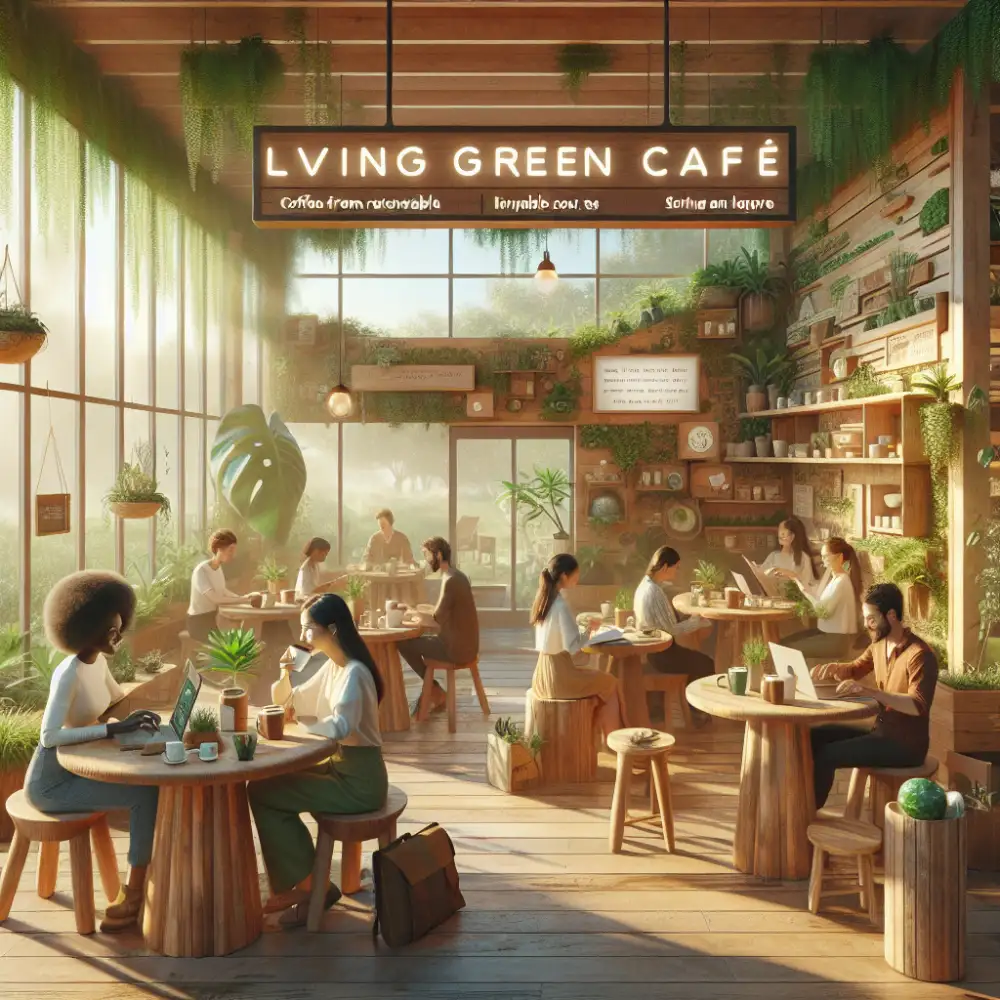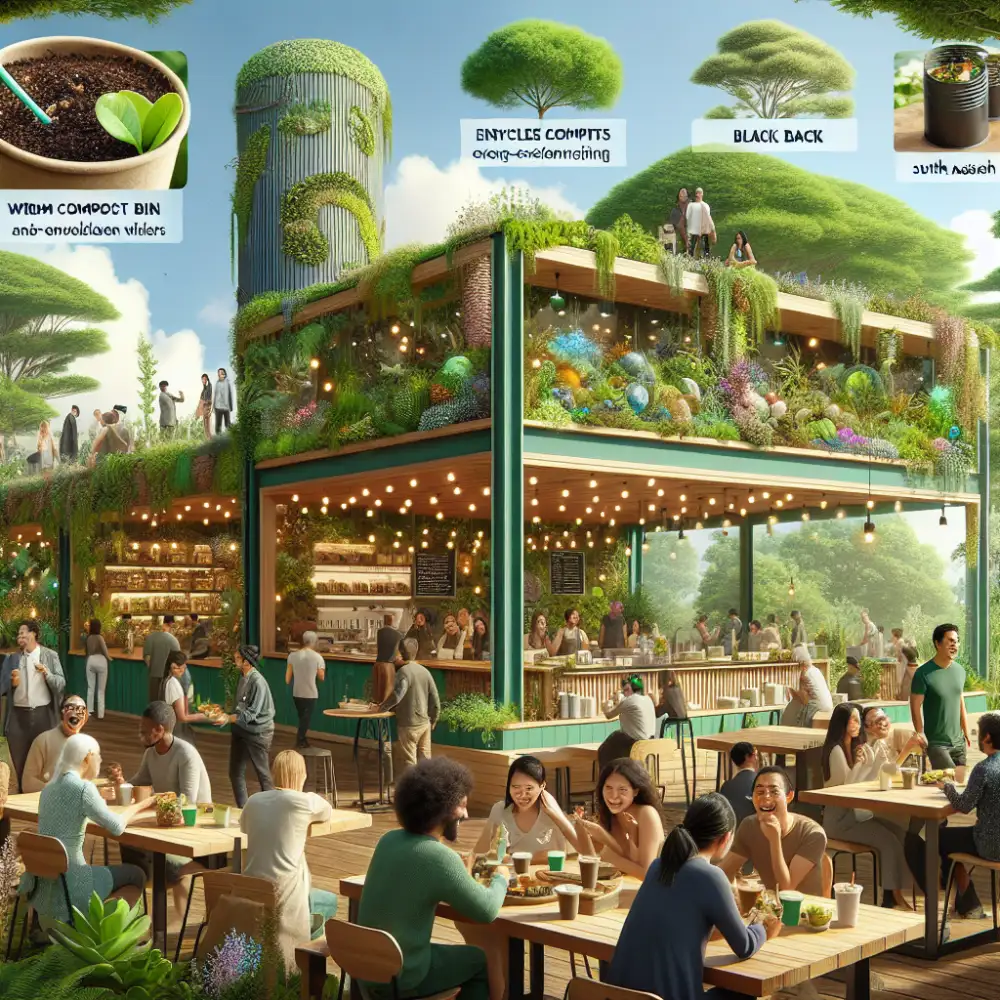Sip Sustainably at This Living Green Cafe

Sustainable Sourcing Practices
Sustainable sourcing practices are becoming increasingly important for businesses that want to reduce their environmental impact and promote social responsibility. These practices involve procuring goods and services from suppliers committed to ethical and sustainable business practices. This includes reducing their carbon footprint, conserving water and resources, and ensuring fair labor practices.
By partnering with suppliers who share these values, businesses can minimize their environmental impact throughout their supply chain. Sustainable sourcing practices benefit businesses, consumers, and the planet. By supporting suppliers committed to sustainability, businesses can help create a more just and equitable world.
Energy-Efficient Design
Energy-efficient design, also known as sustainable design, is a key aspect of creating environmentally friendly and cost-effective buildings. By incorporating energy-saving principles, buildings can significantly reduce their energy consumption and carbon footprint. This involves using efficient building materials, optimizing building orientation and shape, and implementing energy-efficient technologies. For instance, using insulated windows and walls can minimize heat transfer, while solar panels can generate renewable energy. Smart home automation systems can also play a crucial role in monitoring and controlling energy usage, further enhancing efficiency. By embracing energy-efficient design principles, we can create buildings that are not only good for the environment but also for our wallets.
Waste Reduction Initiatives
Waste reduction initiatives are crucial for a sustainable future. They encompass a range of practices aimed at minimizing the amount of waste generated. These initiatives include reducing consumption, reusing products, and recycling materials. By embracing these practices, individuals and communities can significantly decrease the volume of waste sent to landfills, conserve natural resources, and mitigate pollution. Implementing waste reduction initiatives requires collective effort and awareness. Governments, businesses, and individuals must work together to promote responsible waste management practices and foster a culture of sustainability.
Eco-Friendly Packaging
Eco-friendly packaging is all about minimizing the environmental impact of product packaging. This means using materials and processes that are sustainable, biodegradable, and/or recyclable. Think about materials like plant-based plastics, mushroom packaging, and seaweed extracts. These materials break down naturally, reducing waste and pollution. Reusable packaging is another great option, encouraging consumers to reuse packaging instead of tossing it. Eco-friendly packaging isn't just good for the planet, it's becoming increasingly important to consumers too. By choosing eco-friendly options, businesses can attract environmentally conscious customers and enhance their brand image.

Community Engagement
Community engagement is the process of working collaboratively with and through groups of people affiliated by geographic proximity, special interest, or similar situations to address issues affecting the well-being of those groups. It is a powerful vehicle for bringing about environmental and behavioral changes that will improve the health of the community and its members. It often involves partnerships and coalitions that help mobilize resources and influence systems, change relationships among partners, and serve as catalysts for changing policies, programs, and practices.
Plant-Based Menu Options
More and more people are embracing a plant-based lifestyle, and restaurants are taking note. Vegan and vegetarian options are no longer an afterthought, with many eateries now offering dedicated plant-based menus. These menus feature creative and delicious dishes that go beyond the usual salad or veggie burger. Think innovative appetizers like jackfruit tacos or mushroom ceviche, hearty entrees featuring lentil stews or eggplant parmesan, and decadent desserts like vegan cheesecake or chocolate avocado mousse. These plant-based creations are bursting with flavor and showcase the versatility of plant-based ingredients. So, whether you're a committed vegan or simply looking to incorporate more plant-based meals into your diet, explore the exciting world of plant-based menu options. You'll be amazed at the delicious possibilities.
Green Transportation Options
Green transportation options are booming as people seek eco-friendly alternatives. These options minimize our environmental impact and promote sustainability. Public transportation, like buses and trains, is a great way to reduce your carbon footprint. Cycling is another fantastic option, offering a healthy and emission-free way to commute. Electric vehicles are gaining popularity, with advancements in battery technology and charging infrastructure. Walking is often overlooked but is the greenest mode of transportation for short distances. By embracing these options, we can create a cleaner and more sustainable future.
| Feature | Typical Cafe | Living Green Cafe |
|---|---|---|
| Food Sourcing | May use conventional ingredients | Prioritizes local, organic, and seasonal ingredients |
| Waste Management | Often relies heavily on single-use plastics | Emphasizes composting and reusable containers |
| Energy Use | May not prioritize energy efficiency | Uses energy-efficient appliances and lighting |
Educational Resources
There are many resources available to help you learn about a subject. Traditional learning materials like textbooks, academic journals, and documentaries are great places to start. Consider MOOCs (Massive Open Online Courses) from institutions like Coursera, edX, and FutureLearn for a more structured approach. These platforms offer a wide range of subjects, often taught by leading experts. Don't forget about the wealth of information available on YouTube. Many educational channels break down complex topics into easy-to-understand segments. Remember to verify information from less established sources. Libraries, museums, and cultural institutions also offer lectures, workshops, and exhibitions that can enhance your understanding.

Published: 12. 06. 2024
Category: Food



